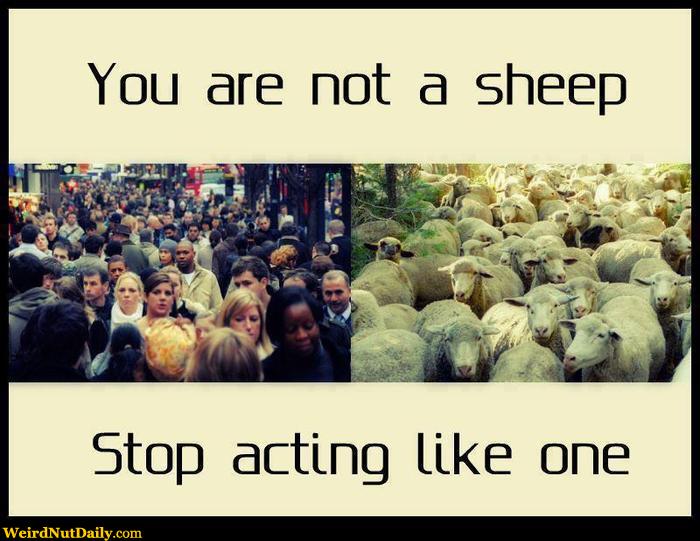One of the more subtle reality inversion techniques used by scammers (and unethical sales people), and cloned by clueless MLM noobs, is misrepresenting "due diligence" as "analysis paralysis".
Analysis paralysis usually refers to an organization attempting to analyze a certain proposed project or change and the effect it would have, but so much time and resource was spent on the analysis that the project never was actually adopted. For an individual, it could be that s/he is attempting to reach a decision, but that decision has so many factors s/he was overwhelmed by combination of scope and interactions and end up making no decision at all.
However, a decision to "not participate because I clearly have no idea what I am getting into" is a decision, and reaching that conclusion is NOT analysis paralysis.
Yet many MLM veterans and noobs will mischaracterize their moment of commitment as "overcoming analysis paralysis". Here is one example from MLMBlonde(dot)com:
Or they may have been polite but also declined and you were crushed
SO you went into what I call "Analysis Paralysis".
You began to question if this could work for you. You start to analyze
your decision.
YOU FREEZE. You begin to think something may be WRONG with you
or you made a bad decision, after all, if those closest to you don't "GET
IT", how you possible speak to a stranger.
You sit back and think and think , and then you just NEVER
get up the nerve to move forward. You lose your excitement. You
just DO NOTHING.
The problem is MLMblonde had NOT described analysis paralysis. She described "self-doubt paralysis", but slapped the "analysis paralysis" label on it.
And she's not alone in doing so. Many MLM noobs seem to think any sort of doubt is analysis paralysis, even a full on analysis (i.e. "trust, but verify").
And due diligence is NOT doubt.
Due diligence is often defined as process of researching and verifying a particular claim. It's sometimes called fact-checking, though it often goes into more nebulous areas such as "risk assessment".
MLM is full of misleading statements, as its participants are quite fond of saying just enough to make a sale, often outright lie or misrepresent facts and/or rely on logical fallacies to make their products/woo and/or business opportunity look wonderful. A single virtual mailbox in Nevada or Delaware becomes a "multi-national debt-free conglomerate". A chiropractor becomes "leading expert in brain health supplements". A dermatology clinic's head becomes expert on stem cells. An equine accupunturist (accupuncture on horses) is a company's "scientific and medical advisor" on nutritional supplement pills... the list goes on and on. (All these are real cases and can be found in this blog or on BehindMLM, I'll add links later)
Clearly, due diligence is required, as no major company in public scrutiny would publish such drivel.
Yet many MLM noobs have an instinctive aversion of due diligence, probably passed on as a meme by their upline. Their thought process roughly goes like this:
Doubt = NO Sale
Doubt = NO Downline
Question = Doubt
Analysis = Doubt
Due diligence = Doubt
ERASE doubt
ERASE question
ERASE analysis
ERASE due diligence
And most noobs, haven't learned any better, picked up on the mislabeled term, without realizing that it is a also cult "thought-stop" tactic.
A cult don't want the members to leave, and one way is to prevent them from even THINKING of leaving, such as imagining a life without the cult itself. This is "Thought Control", one of the four parts in Steven Hassan's BITE model of cult control. And they do this by getting members to stop questioning the cult itself through various techniques. Except instead of a cult and cult leader, you have doubt of the MLM or the scheme being suppressed.
And often, the MLM noob does not even realize this was done... i.e. s/he was already brainwashed and manipulated into manipulating others and use the same techniques s/he is now using on other new recruits.
----------
The proper way to close a sale and satisfy the doubt in the mind of the customer is feed them information. Like "Warranty? Of course! This has a 3 year limited warranty! Give us a call, and we'll send a tech out within 48 hours if you need it!"
 |
| A judas goat leading lambs to the slaughter (Photo credit: Wikipedia) |
The WRONG way to erase doubt in the mind of the customer is to hard-sell them "Warranty? You're thinking too much!" (i.e. analysis paralysis!) You're not going to tell someone who's worried about prospective purchase breaking down by telling him "You're thinking too much!" are you?
So why use the analysis paralysis excuse at all?
Perhaps... you don't WANT thinking customers... but sheeple? Customers who are a bit more... feeble minded and gullible than others?
That makes you the judas goat.


































































